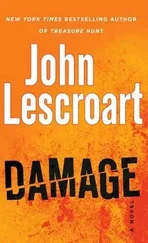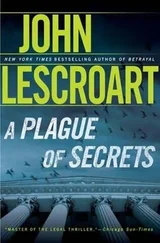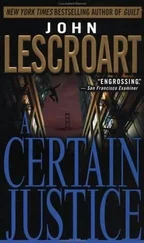I smiled. “I’d guess he said something like, ‘To be frank with you, yes, I would mind.’ ”
“Well, of course, he wasn’t that rude, but I certainly wasn’t made to feel very welcome. After I’d sat down, he carefully ignored me while he finished the column he was reading, drank off his beer, called for the waiter, and ordered two more. Finally, he looked straight at me, and in the sweetest voice asked if I’d like some refreshment.
“I asked for a café au lait, and he appeared to shudder slightly as he ordered. I asked him if something was wrong, if he’d rather I left.
“ ‘No,’ he said, ‘I simply have a prejudice against milk and coffee together in the same cup. Two tolerable beverages by themselves, but together,’ and here he turned his mouth up the smallest degree, ‘together rather like a man and a woman who individually are pleasant but who fail as a couple.’ So we sat in silence until the waiter returned.”
Danielle came back with the tea, and we poured.
“I still fail to see, my dear,” I said, “what he’s done to so upset you. I grant you that he’s arrogant and outspoken, but not without a certain charm.”
“Well, he’s not learned to polish his charms, so they appear cheap.”
“All right, now, what else?”
She sipped at her tea. “As soon as the waiter had gone he looked at me in all politeness. ‘And now, madame, what can I do for you? You look a bit tired.’
“ ‘I am a bit tired,’ I said. ‘One of my dearest friends was buried this morning.’
“ ‘Yes?’ he answered, as if to say, ‘Well, so what?’
“By this time I was so rattled that I’m afraid I rather blurted, ‘We were wondering why you hadn’t bothered to attend the funeral.’
“ ‘We?’
“ ‘Yes, we. Those of us who’d been at Jules’s. We were all there, as was proper. Except, of course, for you.’
“He picked up his beer and drank as though completely dismissing me. I tell you, Jules, I was sorely tempted to slap him. Finally, he put his glass down, told me I was upset, and asked me if I would care to lunch with him. Then he proceeded to speak of his upcoming lunch as though it were all that mattered in the world. I’ll try to give you some of the flavor of it.”
As she spoke, Tania tried to imitate Lupa’s deep baritone: “ ‘Sausages. I was in Spain a few years ago and one day I was standing outside a tapas bar, and the smell of fresh sausage pulled me inside. A large, smiling woman, Señora Beran, was grilling ten or more sausages behind the bar, and so I sat down and began talking with her. She said the sausages were prepared by her son, Jerome, and the recipe was his special secret, but I was welcome to try them. As soon as I’d tasted them, I knew them to be superb, and the flavor remained with me until, indeed, I could think of nothing else. Daily, I went to this same bar and, I’m afraid, badgered that poor woman to distraction. I had to have that recipe. Finally, though, I had to leave and, since that time, have tried unsuccessfully to duplicate that flavor. I’ve written to Jerome Beran personally, through his mother, but he’s been elusive. So now once each month I try again. Not more often because the frustration of failure is bitter indeed. And I dare to call myself a chef. Ha!’ ”
She looked down into her tea. The forenoon breeze whipped her shining dark hair intermittently into her eyes. She reached out her hand across the table for me to take it. “Can you imagine, Jules? He sat and talked about that sausage as though there were no war, no deaths . . .” She paused for a moment to control her voice. “Then, when the sausage arrived, he took a bite and immediately removed from his pocket a small notebook and wrote something. ‘It’s not right,’ he said simply. ‘I must use less brandy and more fowl.’ Thereupon he proceeded to eat every last bit of sausage, pausing at regular intervals to shake his head.
“It was not until he had finished that he addressed himself to me again. ‘Now, as to your question, madame. By the way, are you enjoying the sausage? Excellent wine, even though it’s Spanish, don’t you think?’ Food, food, food. All right, the man’s a chef, but really, Jules . . .”
I patted her hand.
“ ‘Why didn’t I attend the funeral?’ he finally began. ‘There are two reasons. Both, I’m afraid, quite selfish. One, I dislike funerals. A man is a man until his death, after which he becomes mere mineral matter. If one is of a cathartic cast, there may be benefit in public interment, but, even then, the catharsis is misdirected. Death is not tragedy but pathos. Two, lately I’ve been becoming much too flexible in my schedule, and I decided to end that flexibility.’ He looked at me as though he’d explained everything.”
“He is rather intractable,” I offered.
“I was so upset by this time, I didn’t know what to do. He sat looking at me from across that small table, seemingly quite pleased with himself. I wanted to leave, but I wanted to, well, to make him mad, so I stood up and said, ‘If I were you I’d be a little more careful. More than one of us believes you killed Marcel,’ and I turned to go. He spoke my name then, so abruptly that everyone looked up, and I came back to the table.
“ ‘Let’s not be ridiculous,’ he said. ‘I am an acquaintance of Monsieur Giraud. In fact, I’ve spoken to him at some length. For now, you are upset, and I suggest you go home and get some rest.’
“With that, he called for a carriage and sent me on my way. What should I think of him, Jules? Is he a friend of yours?”
Of course, Lupa had told her nothing about our real relationship, leaving it to me to make that decision. I’d tried to be honest with Tania as much as possible, though I hadn’t told her what I really was. There had been no need. And now, I was reluctant to tell her because I was afraid of her. Afraid that she might not understand or, on the other hand, would understand too well. So I temporized.
“I wouldn’t worry about Monsieur Lupa, dear,” I said. “I spent the night at his place on Wednesday after my walking took me downtown. He’d come to the gathering only to try my beer, and was genuinely upset at the way things turned out. He’d only met Marcel that afternoon and they had had no disagreements. They seemed to get on quite well. Certainly, he had no reason to kill him.”
“But which of us did?” she asked.
I shrugged. “I really don’t know. I don’t know.” I slumped and stared down at the well-kept gravel of her terrace. “I can’t believe he killed himself.”
“Maybe Henri is right,” she said, “with his rumors.”
“What are those?”
“He said that he’s heard for the past several months that Marcel had something to do with espionage, with the war.”
A chill passed through me. “Henri said that? Where did he hear that?”
“I don’t know.”
“Well, that’s absurd. I’ve known Marcel all my life, and—”
“But what if he was? What if he was, and another of us is, and we don’t know, and he was killed by one of his friends to keep . . . Oh, Jules,” she said, “I’m afraid.”
I stood up and she rose to embrace me.
“I’m sorry,” she said. “I shouldn’t be such a baby. It’s just with all of this, and the boys away at the front . . . I just don’t know what to make of things.”
I kissed her, and suddenly she stiffened against me.
“What’s that?” she demanded, putting her hand under my arm where I kept my gun.
I had to tell her. “A pistol, just to be safe.”
Her lip quivered. She was going to cry. “Jules, please, don’t you get mixed up in this. Please.”
“Now, now,” I said. “I’m not ‘mixed up’ in anything. I merely felt a little nervous and decided at least to be in a position to protect myself should any of my friends . . .” I trailed off.
Читать дальше












